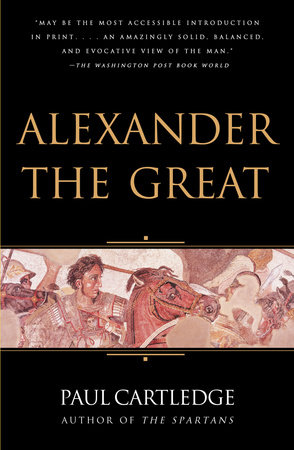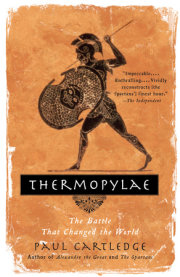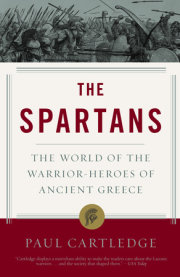1
The Fame of Alexander
The world remembers Iskander and his deeds. Macedonia gave him its sceptre. Iskander was the son of Philip. His life was one long dream of glory. —Abai, ‘Iskander’, trans. Richard McKane
Inheriting at the age of twenty his father Philip’s position as master of the Greek world east of the Adriatic, Alexander had also, by the ripe old age of twenty-six, made himself master of the once mighty Persian Empire. By the time he was thirty he had taken his victorious arms to the limits of the known oikoumenê (inhabited world). Yet, before his thirty-third birthday he was dead. Small surprise, therefore, that he should have become a legend in his own lifetime. That his legend has spread so far and so wide – from Iceland to China – since his death in 323 bce is due very largely to the so-called Alexander Romance. This fabulous fiction took shape in Egypt, mostly some five or more centuries after Alexander’s death.
Thanks to this, and for other reasons too, of course, Alexander became in various countries and at various times a hero, a quasi-holy man, a Christian saint, a new Achilles, a philosopher, a scientist, a prophet and a visionary. But in antiquity he was most famous of all as a conqueror. Here is Arrian, writing in the early second century ce under the influence of the Roman emperor Trajan’s recent conquests in Parthia (in modern Iran); his Anabasis (‘March Up Country’) is our best ancient historical source on Alexander: ‘For my part I cannot determine with certainty what sort of plans Alexander had in mind, but none was small and petty, and he would not have stopped conquering even if he’d added Europe to Asia and the Britannic Islands to Europe . . .’ Arrian was quite properly alert to Alexander’s fame. But that comment on his last plans (see Chapter 10) is just the sort of measured and reflective remark that commends him to the modern critical historian and biographer of the world-conqueror. Apart, perhaps, from his casual remark about ‘the Britannic Islands’ – as if they were not part of ‘Europe’ . . .
A millennium and a half later, Shakespeare’s Hamlet comments rather irreverently in the graveyard scene on the possible earthly fate of Alexander’s corpse:
Alexander died, Alexander was buried,
Alexander returneth into dust; the dust
is earth; of earth we make loam; and why of
that loam, whereto he was converted, might
they not stop a beer-barrel?
This is a chauvinistic English illustration of the fact that Alexander has featured in the national literatures of some eighty countries, stretching from our own Britannic islands to the Malay peninsula by way of Kazakhstan (home of Abai, its national poet). This, in its turn, is another way of saying that Alexander is probably the most famous of the few individuals in human history whose bright light has shot across the firmament to mark the end of one era and the beginning of another. As the novelist Mary Butts put it rather well (in a note to her 1931 fiction, The Macedonian): ‘There are men who sum up an epoch, and men who begin another. Alexander did both.’ She aptly cited, too, another passage of Arrian:
‘I am persuaded that there is no nation, city or people then in being where his name did not reach; for which reason, whatever origin he might boast of, or claim to himself, there seems to me to have been some divine hand presiding over both his birth and his actions,
inasmuch as no mortal on earth either excelled or equalled him.’
Another local testimony – and testament – to Alexander’s fame is as British in its way as can be. To celebrate the 250th anniversary of the founding of the British Museum in 1753, the Royal Mail devised a set of special stamps illustrating just six objects out of the BM’s collection of over seven million artifacts spanning some two million years of the human past. One of these six represents a stone bust of Alexander carved in the Hellenistic era (about 200 bce): Alexander, ‘who’, according to the promotional material, ‘after his death, was worshipped as a god’.
That is not quite accurate; he was also, crucially, worshipped as a living god. But one ancient figure who certainly was worshipped as
a god only after his death was the proto-Roman emperor Julius Caesar, in whose life Plutarch (as Shakespeare well knew) found a parallel to that of Alexander. Reasonably enough, since in some respects Caesar did come quite close to equalling Alexander – though only after many more years of trying – and he did give his name to a type of autocratic ruler (Kaiser, Czar). When Julius was on an early tour of imperial duty in Spain, Plutarch relates, he is said to have gazed at a statue of Alexander (perhaps like the one now in the Museum at Seville, which came from the Roman colony of Italica that produced two later Roman emperors). And he wept because, whereas Alexander had died at thirty-two, king of so many peoples, he himself at that same age had not yet achieved any brilliant success. I am no Julius Caesar. But I am fifty-six at the time of writing this – so you can, I hope, imagine how I feel.
Many many more illustrations of Alexander’s fame could be given. St Augustine wasn’t hugely impressed: he considered him (in Frank Holt’s paraphrase of the City of God passage) ‘a rogue with a global appetite for plunder’ – a rather startlingly modern image. St John Chrysostom, patriarch of Constantinople, objected to the way that coins bearing Alexander’s image were often bound to people’s heads and feet as apotropaic talismans. The modern equivalent of this is perhaps to be found on the tennis court: the Australian player Mark Philippoussis, whose father is Greek, carries an Alexander tattoo. Presumably Chrysostom would have been more in sympathy with Dante, who consigned Alexander to the seventh circle of his Inferno, along with (other?) thieves, murderers and tyrants. Even in Greece today sailors in distress are said to be confronted by a water-nymph who demands to know ‘Where is the great Alexander?’ To which the only satisfactory response is: ‘Great Alexander lives and reigns.’ Indeed.
Such in fact is his continuing fame even in today’s very differently structured global world that business journalists write management books purporting to derive and to convey ‘lessons from the great empire builder’. And American film-makers and their financial backers are prepared to commit millions of dollars to exploring, recreating and perhaps even, they hope, enhancing the fame of the original. But was fame or glory, as Abai would have it, the spur for Alexander – the holy grail that drove him to achieve what he did? And, though without question incomparably famous both now and in his lifetime, was he, is he, also ‘great’, let alone ‘the Great’? These are just some of the major questions that we shall seek to answer in the course of our hunt for a new interpretation of Alexander’s peculiar genius.
My answers, any answers, must necessarily be provisional, tentative and more or less speculative. For Alexander has been handed down to us ultimately as an enigma, thanks above all to the inadequate nature of our sources of evidence. Though the extant evidence is very far from slight in quantity, it is in several respects seriously deficient in quality. It is mainly non-contemporary, it is partisan (con as well as pro), and it tends to be sensationalist. Whichever of the major aspects of Alexander’s career we study, therefore, we are usually unable to reach anything firmer than a high probability in explanation, and even that degree of probability is a rarity. The very facts themselves – what actually happened – are often unclear. Like that of the ancient Roman historian Tacitus, therefore, our prime watchword as historians of Alexander must be distrust of what we are told.
Some students of Alexander, indeed, believe that the best that can be done in the way of historical retrieval is to focus on the various images of the man that the different kinds and media of evidence provide, without hoping or expecting to be able to proceed further to uncover anything like the – or any sort of – truth about Alexander. The present book will indeed pay due attention to the image, or rather images, of Alexander, and to the abundant mythistorical tradition that sprang up around him in his own lifetime and has continued vigorously to our own day. But it will also argue that a careful reading of the most reliable ancient sources, both written texts and broadly archaeological data, can reveal something substantial about what made Alexander tick, and how and why he was able to achieve what he did.
I shall begin by tracing in outline Alexander’s career from his birth at Pella in Macedonia in summer 356 to the beginning of his campaign of conquest against the Persian Empire in 334. This will be only an outline account, but it will provide a geographical and chronological backdrop and framework for the subsequent thematic chapters; and, as I go through, I shall indicate those points at which the key themes singled out for detailed discussion are engaged. The purely geographical frame of Alexander’s achievements will constantly be referred to. Polybius (a major Greek historian of the second century bce) believed that a proper history couldn’t be written except by someone who’d inspected all the scenes of historical action in person. Unfortunately, this has not been possible for me, not by a long chalk, but what I shall try to do is bring out the salient features of terrain and climate in every relevant case, beginning with Alexander’s own home territory of Macedonia (Upper and Lower). I shall then dog Alexander’s footsteps for well over twenty thousand miles (30,000 kilometres) as he led victorious armies, first north towards the Danube then south into central Greece, before finally setting off for Asia, never to return to Europe, in 334.
Between 334 and 331 he defeated the Persian Great King’s Mediterranean navy – paradoxically, unpredictably and perhaps undeservedly – by land. That is, he captured its bases one by one, especially in the Levant, where the siege of Tyre in 332 was crucial. This meant that, with mainland Greece under the firm control of Regent Antipater, Alexander could for the most part concentrate unswervingly on winning a series of major set-piece battles against Darius III. Of these there were three: the Granicus river in western Anatolia in 334, Issus in southern Anatolia in 333, and Gaugamela in Mesopotamia in 331. Much more, and very hazardous, fighting lay ahead. But to all intents and purposes from the middle of 329, when a kinsman and would-be successor of the dead Darius was executed, Alexander had no rival as ruler of a new, massively enlarged empire. Eventually, this would stretch from Greece to Pakistan, taking in on the way – among other countries or regions – Egypt, Syria and Babylonia, as well as, of course, the old Persian heartland of Iran.
The hardest fighting, and in its way the most admirable of Alexander’s military successes, occurred in the uplands of central Asia between 329 and 327. This was episodic and irregular guerrilla fighting against tribal warrior bands, not a series of formal, traditional encounters with national or civic armies in open field of battle. Alexander’s father Philip had, it was neatly said by a later biographer, ‘fought his wars by marriages’: that is to say, he had combined straightforward fighting and conquest with marital diplomacy and bridge-building, either to lessen his enemies’ resistance, or to ensure their quiescence after defeat; and he had done so no fewer than seven times. Alexander imitated his father only twice, in Sogdia in 327 and in Iran in 324, and each was a sign not of power and success but rather of the difficulty with which the victory had been won, and the complexity of any subsequent maintenance of his authority. Later writers talked these marriages up in romantic terms, especially his first with Roxane, but the truth was surely more pragmatically prosaic.
Once he had Iran and its environs more or less securely under his control, by the summer of 327, it is arguable that Alexander did not need to embark on further conquest. He did not need, for example, to reconquer the land beyond the Hindu Kush mountains, in modern Pakistan, that had once belonged to the Persian Empire but long since been lost and abandoned. Yet not only did Alexander inspire, cajole or drive his men (and their sexual partners) across and into Pakistan and India, but he made as if to press on ever further eastwards, to the very edge of the world (as that was then generally conceived), to where the furthermost landmass was lapped by the engirdling Ocean. As the Roman author Quintus Curtius Rufus put it: ‘The fates waited for him to complete the subjugation of the Orient and reach Ocean, achieving all that a mortal man was capable of.’
A tremendous and astounding victory was gained in 326 over the Paurava Rajah (his name was Hellenized as ‘Porus’), elephants and all, at the River Hydaspes (modern Jhelum; see further Chapter 7). But when the men, the Macedonian core, reached the River Hyphasis (the modern Beas), their sufferings from long years of campaigning exacerbated by unheard-of natural torments like the monsoon, they delivered their – literal – ultimatum to Alexander, who was forced to concede his first defeat: at the hands of his own men. With ill grace and unappealing savagery Alexander cut a path to the mouth of the Indus, dispatching many Indians, on the one hand – and in another sense, on the other, a part of his troops back to Iran by sea. Perhaps recklessly he took the remainder in person through the gruelling Makran desert of Baluchistan.
This near-final – as it was to prove – major military effort took some of the gloss off Alexander’s previous astonishing military achievements. His return to Iran, to the centre of his new empire, forced upon his immediate practical consciousness for the first time the nature and urgency of the problem of managing and administering this vast new entity. Not surprisingly, he did not always get it right. Not only did his Asiatic appointees as governors prove corrupt, inefficient or disloyal, or all three. Also, his childhood chum and now Imperial High Chancellor, Harpalus, decided in 324 to defect (for the second time) to mainland Greece, adding injury to insult by taking with him a vast sum of what should have been Alexander’s treasure. Alexander’s difficulties were compounded by the loss, this time merely to death from disease, of another intimate friend since childhood, his Grand Vizier Hephaestion. Rumour had it – and rumour was for once surely correct – that he and Alexander had once been more than just good friends. At any rate, Alexander’s grief was truly Homeric, as if Achilles were grieving for Patroclus over again. And perhaps he never quite recovered the balance of his mind before he too died – of a fever, probably, though inevitably it was rumoured that he had been assassinated, like his father before him – at Babylon in June 323.
Copyright © 2005 by Paul Cartledge. All rights reserved. No part of this excerpt may be reproduced or reprinted without permission in writing from the publisher.









